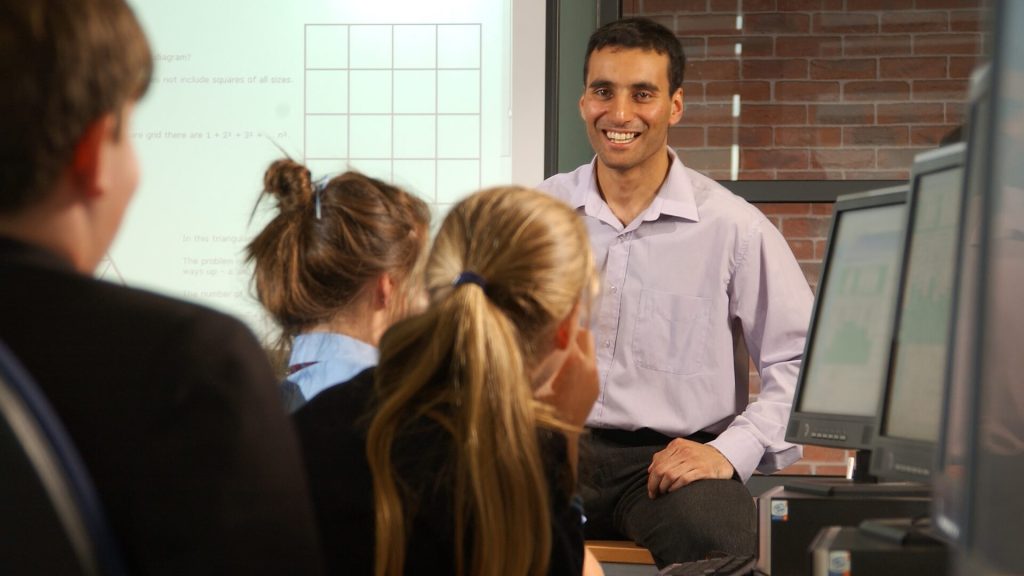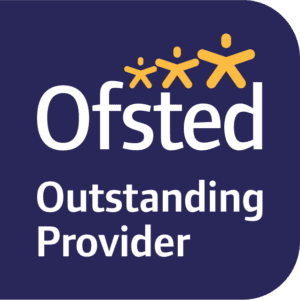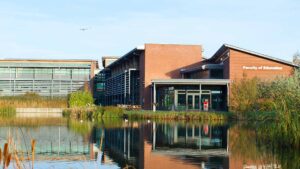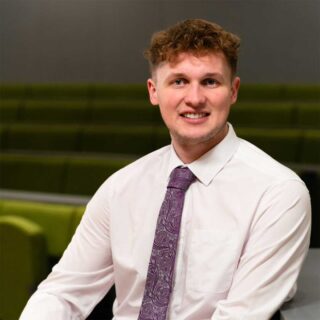Secondary Mathematics Education with QTS BSc (Hons)
UCAS code: X1GC
A great teacher can show their pupils that mathematics is a way of communicating and understanding the world. Join this exciting degree to gain recommendation for Qualified Teacher Status. Pass on your passion for mathematics to pupils when you graduate.
Overview
| Course length: | 3 years full-time |
|---|---|
| Start dates: | September 2025 September 2026 |
| Location: | Edge Hill University |
| Example offers: | BCC-BBC (A Level) or DMM (BTEC) View full entry criteria |
| Subject(s): | Education and Teaching |
| Faculty: | Education |
| Department: | Secondary and Further Education |

Help pupils grasp the basics of geometry. Deliver calculus masterclasses to gifted young mathematicians. Show students how statistical techniques can have real-world applications. At Edge Hill, you’ll learn how to become a great maths teacher, while on your school placements you’ll put your ideas into practice.
We’ll cover branches such as calculus, discrete mathematics, inferential statistics, statistical modelling, and linear algebra. You’ll learn about educational theories and policies. You’ll discover ways of incorporating technology and mathematics software into lessons. And you’ll gain valuable experience in the classroom, planning and delivering sessions and reflecting on your work.
Our experienced tutors at Edge Hill and the expert teachers in your placement schools will help you succeed. We’ll support you throughout your degree and as you take your first steps as an Early Career Teacher. Successful completion of this course leads to recommendation for Qualified Teacher Status (QTS).
 Ofsted Outstanding Provider
Ofsted Outstanding Provider
Course features
-
Ofsted outstanding provider for Initial Teacher Education
-
International students can apply
-
Professional accreditation
-
Professional practice placements
What you'll study
We’ll introduce you to degree level mathematics in areas like discrete mathematics, differential calculus, and algebraic and geometric structure. Your education modules will help you become used to university study and start to develop your own values. In Year 1, you’ll also observe lessons in schools to see how the teaching theory applies in a real setting.
In Year 2, you’ll build on your knowledge as we look at more advanced mathematics topics in calculus, linear algebra, and statistics. You’ll learn to use mathematics as a means of communication and you’ll start to understand the relationship between real world problems and mathematical models. And in your school practice placement, you’ll go beyond observation, you’ll help plan lessons and ensure pupils are making progress.
In your final placement, you’ll take on more teaching responsibility and become more involved in the life of the school. Your experience will help you become a confident teacher. You’ll be able to not only teach mathematics, but promote numeracy and show pupils the beauty of learning the subject too. You’ll reflect on your teaching experience, while looking to the future of education and learning advanced techniques to help you become an outstanding mathematics specialist.
How you'll study
You will learn through your time in university and out on placement. The approaches to teaching and learning are varied and include lectures, tutorials, independent study, practical workshops and seminars. The Edge Hill University Partnership is actively involved in the promotion of mathematics in local schools.
You will spend a significant amount of time on placement. This puts your training into practice through assisting in, and taking responsibility for, classes, being trained by, and working alongside, mentors and peers to further your professional development. Your teaching timetable will increase as your training progresses and you become more confident in the classroom.
You will also undertake Intensive Training and Practice (ITAP) as a specific and focused element of our teacher training curriculum. This is designed to consolidate your knowledge of effective teaching, and enable you to rehearse and obtain feedback from experts on your practice. Our ITAPs are designed to utilise the latest research and technology as well as draw on the outstanding mentors, tutors, and teacher expertise from across our partnership.
Over the course of your training, you will have the opportunity to participate in several days of Intensive Practice focusing on aspects of pivotal practice such as; behaviour management, scaffolding, professional behaviours and questioning.
During periods of ITAP, your timetable may differ and you may be required to attend campus and/or a placement on days outside of the usual pattern.
You will spend a significant amount of time undertaking professional practice placements, normally in key stages 1 and 2 in schools and other educational settings. During these experiences you will have opportunities to observe the work of expert practitioners. You will reflect on and discuss this practice with those practitioners and your trained school-based mentor. As you take on increasing responsibility for children’s learning and development, you will start by working with small groups under the direction of the class teacher, sometimes with a student teacher partner, and progress to planning for and working with the whole class for significant periods of time, managing the learning of every child.
You will work with pupils from various areas, backgrounds and abilities providing you with excellent experience in classroom management and the ability to teach individuals and groups at a range of levels.
How you'll be assessed
You will be assessed through a carefully sequenced curriculum which encompasses your subject knowledge, your pedagogical knowledge, and your classroom-based experience. Assessment methods will include in-class tests, written assignments, and portfolios both during your time at university and when you are on your Professional Practice. Your professional development will be mapped against our carefully sequenced ITE curriculum so that, at the end of your training, you can be assessed against the Teachers’ Standards and be recommended for for the award of QTS.
There are no formal written examinations as part of the current assessment methods on this programme, though there are some lower-stakes class tests.
Who will be teaching you
The Faculty of Education has been at the forefront of teacher education for over 135 years and today enjoys the enviable position of being one of the country’s leading providers of education, training and research for the children’s workforce.
You will be taught by tutors at the cutting edge of national developments within education who write textbooks and mathematics schemes for national publication.
The Edge Hill lead mentors and mentor leadership team play an important part in your teacher training as experts in their field. They have a deep knowledge of the trainee curriculum and support trainees and mentors to make progress providing guidance and support on aspects of the curriculum and assessment.
Entry criteria
Entry requirements (2025 / 2026)
Typical offer 104-112 UCAS Tariff points. An A Level at minimum grade C (or equivalent) in Mathematics is required, plus GCSE English Language or English Literature and Mathematics at Grade C or Grade 4 or above (or equivalent);
Please note, for the purposes of initial teacher training, level 2 literacy and numeracy qualifications are not considered as equivalent to GCSE Grade C or Grade 4 in English Language or English Literature and Mathematics.
An interview forms part of the selection process.
If you accept a formal offer from Edge Hill University you will be required to meet the Department for Education’s standards for physical and mental fitness to teach and clearance to work with children. Further information, including a Declaration of Health questionnaire and details of how to apply for a Disclosure and Barring Service (DBS) Enhanced Disclosure will be sent to you after you have firmly accepted an offer.
You could apply for direct entry at Level 5 if you can evidence appropriate prior learning in accordance with Edge Hill University’s Academic Regulations.
Example offers
| Qualification | Requirement |
|---|---|
| A Level | BCC-BBC. |
| BTEC Extended Diploma (or combination of BTEC QCF qualifications) | Distinction, Merit, Merit (DMM). |
| International Baccalaureate (IB) | We are happy to accept IB qualifications which achieve the required number of UCAS Tariff points. Subject-specific requirements at Higher Level (HL) Grade 5 may apply. |
| Access to Higher Education Diploma | 45 credits at Level 3, for example 9 credits at Distinction and 36 credits at Merit or 15 credits at Distinction and 30 credits at Merit. The required total can be attained from various credit combinations. |
Please note, the above examples may differ from actual offers made. A combination of A Level and BTEC awards may also be accepted.
If you have a minimum of two A Levels (or equivalent), there is no maximum number of qualifications that we will accept UCAS points from. This includes additional qualifications such as Extended Project Qualification (EPQ), AS Levels that haven't been continued to A Level, and General Studies AS or A Level awards.
English language requirements
International students require IELTS 6.0, with a score no lower than 5.5 in each individual component, or an equivalent English language qualification.
If your current level of English is half a band, one band, or one-and-a-half bands lower, either overall or in one or two elements, you may want to consider our Pre-Sessional English course.
Fair Entry Criteria
Our new Fair Entry Criteria is a Contextual Admissions Policy that takes an applicant’s personal and educational background into account. This policy will allow eligible applicants to receive up to a two-grade reduction in their entry requirements for this course. Find out more and see if you qualify.
How to apply
Apply full-time
Read our guide to applying through UCAS to find out more about the application process.
International
Please see our international student pages for further information about how to apply as a prospective international student.
Should you accept an offer of a place to study with us and formally enrol as a student, you will be subject to the provisions of the regulations, rules, codes, conditions and policies which apply to our students. These are available at www.edgehill.ac.uk/studentterms.
If you join a full time undergraduate degree at Edge Hill University, we will guarantee you the offer of a room in our halls of residence for the first year of your course.
Discover our accommodation
Facilities

The Faculty of Education enjoys the enviable position of being one of the country’s leading providers of transformative education, training and research for the teaching and education workforce. Housed in a state-of-the-art £9m building, the Faculty of Education enjoys a stunning setting from both its lakeside and piazza buildings.
Facilities in the lakeside building include a 300-seat lecture theatre, five well-equipped ICT suites, and 18 teaching rooms complete with the latest technology.
Our nearby piazza building houses our Research Hub and our Secondary and Further Education department including a lecture theatre and a number of seminar rooms.
Where you'll study
Finance
Tuition fees
UK Full-Time
£9,535
a year
International
£17,000
a year
EU/EEA and Swiss students who have settled or pre-settled status under the EU Settlement Scheme, as well as Irish nationals, may be eligible for the UK tuition fee rate.
Financial support
Subject to eligibility, UK students joining this course can apply for a Tuition Fee Loan from the Government to cover the full cost of tuition fees. UK students enrolling on the course may also be eligible to apply for additional funding to help with living costs.
Scholarships
We offer a range of scholarships, which celebrate the determination, commitment and achievement of our students. Many of our scholarships are awarded automatically. There are some however, where you will need to be involved in an application or nomination process. To find out more about our scholarships and check your eligibility, please visit our dedicated scholarships pages.
Money Matters
Please view the relevant Money Matters guide for comprehensive information about the financial support available to eligible UK students.
EU/EEA and Swiss students who have settled or pre-settled status under the EU Settlement Scheme may be eligible to apply for financial support. Irish nationals can ordinarily apply to Student Universal Support Ireland (SUSI). If you are an EU student who does not have settled or pre-settled status, or are an international student from a non-EU country, please see our international student finance pages.
Your future career
This degree is accredited by the Department for Education. Successful completion of the course will enable you to gain recommendation for Qualified Teacher Status (QTS).
When you complete your degree, you’ll have an outstanding knowledge of mathematics and the creativity and confidence to deliver exciting mathematics lessons to secondary school pupils. With the recommendation for QTS and your practical experience, you will be able to work in secondary schools, sixth form colleges, and special schools.
We’ll help you secure your first teaching post. There is a high demand for qualified secondary school mathematics teachers in the UK, so there will be plenty of opportunities for employment in schools once you graduate.
We have many inspirational and enthusiastic graduates working in schools across the UK and beyond. As part of their commitment to bringing excellence into the teaching and learning of mathematics, they regularly engage in development opportunities. You might also want to consider returning to Edge Hill University for postgraduate study or professional development.
Course changes
Every effort has been made to ensure the accuracy of this information, however our courses are subject to ongoing review and development. Changing circumstances may necessitate alteration to, or the cancellation of, courses.
Changes may be necessary to comply with the requirements of professional bodies, revisions to subject benchmarks statements, to keep courses updated and contemporary, or as a result of student feedback. We reserve the right to make variations if we consider such action to be necessary or in the best interests of students.













